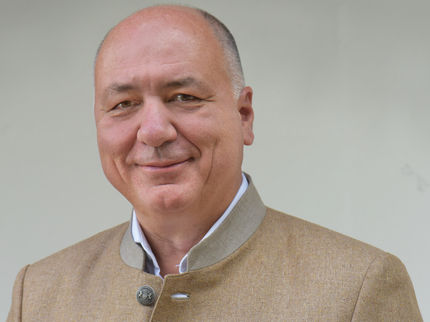Scientific Meeting on Efficacy of Long-Term Vedolizumab Treatment
Advertisement
Analysis reported clinical improvements with up to 152 weeks of Vedolizumab treatment seen in patients with moderately to severely active ulcerative colitis
Takeda Pharmaceutical Company Limited announced that the interim findings from the GEMINI Long-Term Safety (LTS) study were presented during the 2016 European Crohn's and Colitis Organisation (ECCO) Annual Scientific Meeting in Amsterdam, The Netherlands. The presented data showed that patients with moderately to severely active ulcerative colitis (UC) reported clinical improvements with approximately three years of treatment with vedolizumab. Findings from a second analysis of GEMINI LTS were also presented and mucosal healing was observed in patients with Crohn's disease (CD) or UC after long-term treatment with vedolizumab. Mucosal healing is a measure of disease activity in inflammatory bowel disease with greater healing correlated with lower disease activity. Twelve Takeda-sponsored abstracts on vedolizumab, including four oral and eight poster presentations, were accepted to be featured during the ECCO meeting. Vedolizumab was approved as a gut-selective humanized monoclonal antibody in the European Union in 2014, under the trade name Entyvio(® )(vedolizumab). Entyvio was also approved in the United States (U.S.) in May 2014. Entyvio is now approved in 48 countries, across three continents.
Interim data from GEMINI LTS, an ongoing open-label extension study, where eligible patients received vedolizumab every four weeks, were analyzed for 73 patients with moderately to severely active UC. These patients had completed 152 weeks of cumulative treatment with vedolizumab, having first received vedolizumab either every eight weeks or every four weeks during the GEMINI I maintenance phase after demonstrating an initial response at week 6 to two induction doses. In total, remission was observed in 53 percent and 39 percent of patients for the eight-week and four-week treatment groups, respectively. Higher remission rates (57% and 43%, respectively) were observed in patients who were tumor necrosis factor-alpha (TNF) blocker naive compared with those who had experienced prior TNF blocker failure (48% and 29%, respectively).
"Interim findings revealed very encouraging levels of remission for patients with ulcerative colitis with approximately three years of treatment and also provided valuable insights about how treatment history may impact treatment success," said Edward V. Loftus, MD, professor of medicine, Gastroenterology, Mayo Clinic. "Achieving long-term remission is the treatment goal for all patients living with inflammatory bowel diseases, so it is essential that studies like this are conducted to help us understand the long-term efficacy and safety of the treatment options we prescribe."
A second analysis, which was retrospective, and also based on the GEMINI LTS study population, reports the incidence of mucosal healing and colonic dysplasia in patients with either CD (n#) or UC (n9) who were receiving every four-week maintenance dosing of vedolizumab beyond one year. Data from 82 colonoscopies performed after a median of 2.7 years were analyzed (32 CD, 50 UC). Endoscopic healing was defined as a Mayo score of 0 or 1 for UC. The Mayo score is an assessment of the activity of UC in which 0 indicates the least activity and 1 indicates mild disease (mild erythema, decreased vascular patterns). For CD, marked improvement in endoscopic lesions with persistent ulceration was defined as partial healing, and the absence of ulcers as complete healing. Complete mucosal healing was observed in 44 percent of the CD colonoscopies and partial healing was observed in 38 percent. For the UC colonoscopies, a Mayo score of 0 was observed for 54 percent, and a Mayo score of 1 for 20 percent.
"The pivotal Phase 3 GEMINI clinical trial program was the largest ever conducted simultaneously in ulcerative colitis and Crohn's disease, and continues to yield a great depth of information around the safety and efficacy of vedolizumab," said Dr. Michael Smyth, global brand medical director, Gastroenterology, Takeda. "Takeda is committed to studying the long-term efficacy and safety of vedolizumab in order to equip the medical community with the best possible tools and data to address the needs of patients who are impacted with these diseases, which are chronic in nature and require long-term treatment."
Entyvio is the first and only biologic therapy to be approved simultaneously for the treatment of adults with moderately to severely active UC or CD who have had an inadequate response with, lost response to, or were intolerant to either conventional therapy or a TNF blocker.
Other news from the department research and development
Most read news
More news from our other portals
See the theme worlds for related content
Topic world Antibodies
Antibodies are specialized molecules of our immune system that can specifically recognize and neutralize pathogens or foreign substances. Antibody research in biotech and pharma has recognized this natural defense potential and is working intensively to make it therapeutically useful. From monoclonal antibodies used against cancer or autoimmune diseases to antibody-drug conjugates that specifically transport drugs to disease cells - the possibilities are enormous

Topic world Antibodies
Antibodies are specialized molecules of our immune system that can specifically recognize and neutralize pathogens or foreign substances. Antibody research in biotech and pharma has recognized this natural defense potential and is working intensively to make it therapeutically useful. From monoclonal antibodies used against cancer or autoimmune diseases to antibody-drug conjugates that specifically transport drugs to disease cells - the possibilities are enormous























































